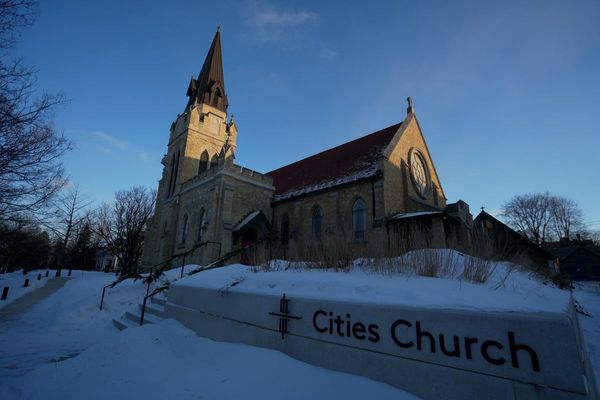Southern Nevada’s housing market has reached new highs, but many homeowners remain unprepared to protect what they’ve built. With median home prices in Las Vegas hovering around $450,000 in early 2024, even modest properties now carry serious equity. Despite this, far too few residents have a will, trust, or plan in place to secure their assets.
For families, that lack of planning can mean long delays, legal fees, and lost value. And for transplants unfamiliar with Nevada’s laws, the risks are even greater. Rising property values don’t guarantee financial security if those gains can’t be passed down or protected. Without a clear estate strategy, high home equity can quickly become a liability.
Why Southern Nevada Prices Are at an All-Time High
Southern Nevada home values are climbing faster than most other markets. The main driver is population growth. People from California, Arizona, and other high-cost states are moving in, attracted by lower taxes and a more affordable lifestyle.
At the same time, the housing supply is shrinking. According to Las Vegas Realtors, active listings dropped about 14 percent year over year in early 2024. That drop makes competition stronger for every available home.
Higher mortgage rates around six to seven percent haven’t slowed demand either. Many buyers, especially retirees and out-of-state investors, are paying cash. These buyers aren't as sensitive to rate changes, so they keep the market moving.
Land restrictions are another factor. Much of the land surrounding Las Vegas is federally owned and unavailable for development. Add in limits on water use, and new construction slows down even more. As a result, supply can’t keep up with demand.
Prices continue rising because there aren’t enough homes to meet the needs of new and existing residents. If you own property here, your equity may have grown faster than you realize. But that growth also calls for a smart plan to protect it.
The Estate-Planning Gap: Why So Few Nevadans Have Wills or Trusts
Most adults in Nevada haven’t taken steps to protect their home’s value through estate planning. This leaves families exposed to delays, fees, and confusion.
Procrastination, Cost Myths, and a False Sense of Security
According to a 2023 Caring.com study, only 24 percent of adults in the United States have a will. Even fewer, just 13 percent, have created a trust. The most common reason? People simply haven’t gotten around to it. Others believe they don’t own enough to justify planning.
In Nevada, that belief can backfire. Many new residents don’t understand the state’s community-property laws. If you moved from a separate-property state and didn’t update your deed, your spouse might not automatically inherit the home. A 2023 review by the Nevada State Bar found that only 17 percent of homebuyers updated their ownership documents after relocating.
Cost also discourages some homeowners. But the reality is that a basic revocable living trust in Clark County often costs between $1,500 and $2,500. That’s less than a month’s worth of probate fees in many cases. When compared to the risks of dying without a plan, the cost of professional help looks far more reasonable.
If you own a home in Nevada and haven’t addressed your estate plan, now is the time.
When Rising Equity Meets Poor Planning: Three Hazards
Rising home equity can be lost quickly without proper legal protection. When homeowners pass away without a clear estate plan, that value is at risk.
Probate Delays
Without a trust or will, real estate typically goes through probate. The Nevada probate process in Clark County can take several months, sometimes longer if family members disagree. During this time, your heirs can't sell or refinance the home, and legal fees can reduce the property's value.
Creditor Claims
Probate also opens the door to claims from creditors. If the estate owes money, medical bills, credit cards, or unpaid taxes, those debts get paid before anything is distributed. That can shrink what's left for your family, especially if there's no shield in place to protect your home.
Tax Exposure
The federal estate tax exemption sits at $13.61 million in 2024. That may sound high, but with rising home values, retirement savings, and life insurance, some estates could hit the threshold. And if Congress allows the exemption to drop in 2026 as planned, more families could face unexpected tax bills. A clear estate plan can reduce or avoid this exposure by placing assets in the right structure ahead of time.
A 2023 report from Wealth indicates that while many Americans have a will, fewer have a trust, which can be more effective in avoiding probate and protecting assets.
Action Plan: How Homeowners Can Safeguard Equity Now
Without action, home equity is just a number on paper. These five steps help you secure it and protect your family from stress and loss later.
Five Moves to Beat the Clock
If you want to protect your home equity, don’t wait. These five actions can make a major difference and most of them are faster and cheaper than people expect.
- Get a baseline valuation (CMA minus mortgage): Start by finding out what your home is worth today. Subtract your mortgage balance from a current Comparative Market Analysis (CMA) to estimate equity. You can use a public records search or ask a real estate agent for a free CMA.
- Draft a revocable living trust; pair with a pour-over will: A living trust avoids probate and ensures a smoother handoff. A pour-over will act as a backup for anything not listed in the trust.
- Record a transfer-on-death (TOD) deed (fee < $100): This simple document ensures the home passes directly to your beneficiary without court delays. Nevada allows TOD deeds for most residential properties.
- Update beneficiary designations on financial accounts: Life insurance, retirement plans, and bank accounts should all have current beneficiaries. This step often gets missed during big life changes.
- Consider a Nevada Asset-Protection Trust for landlords or business owners: If you own rental property or a business, this legal tool can shield assets from lawsuits and future creditors, while still letting you benefit from them.
Pro Tip: Online legal services offer basic estate tools for $159 to $599. But if your finances are complex, speak with a Nevada-based attorney who can build a custom plan that fits your situation.
Resources & Next Steps
Free and low-cost tools can help you take the first step. The Legal Aid Center of Southern Nevada offers estate-planning clinics to guide you through creating basic documents. These clinics are especially helpful for first-time planners or those unsure of what’s required.
If you’re concerned about federal estate taxes, the IRS Form 706 estimator can help. It provides an estimate of how close your total estate value may be to the taxable threshold. Knowing where you stand makes it easier to decide whether you need advanced planning tools like trusts or lifetime gifts.
Reaching out to a qualified estate attorney is also a smart move, especially if you own multiple properties, run a business, or have complex family arrangements. Getting the right advice early can protect your assets and simplify things for your loved ones.
High home values offer an opportunity but only if that equity is protected. Without a plan, your property could face probate delays, legal costs, and tax risks. The good news is that smart planning doesn’t have to be expensive or complex. A few proactive steps today can save your family time, money, and stress tomorrow.







